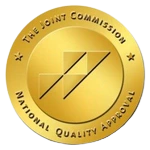Tulip Hill Recovery is a trusted addiction treatment provider dedicated to helping individuals and families find lasting healing through compassionate, evidence-based care.
Our team understands that recovery is not one-size-fits-all, which is why we offer individualized treatment plans that support the whole person—mind, body, and spirit. Whether you’re seeking help for yourself or someone you love, Tulip Hill Recovery provides a safe, supportive environment where clients can begin rebuilding their lives with dignity and hope. From detox and residential care to outpatient services and ongoing support, we’re committed to guiding each person through every step of the recovery journey.
If you’re ready to take the first step, Tulip Hill Recovery is here to help you reclaim your life and move forward with confidence.


















